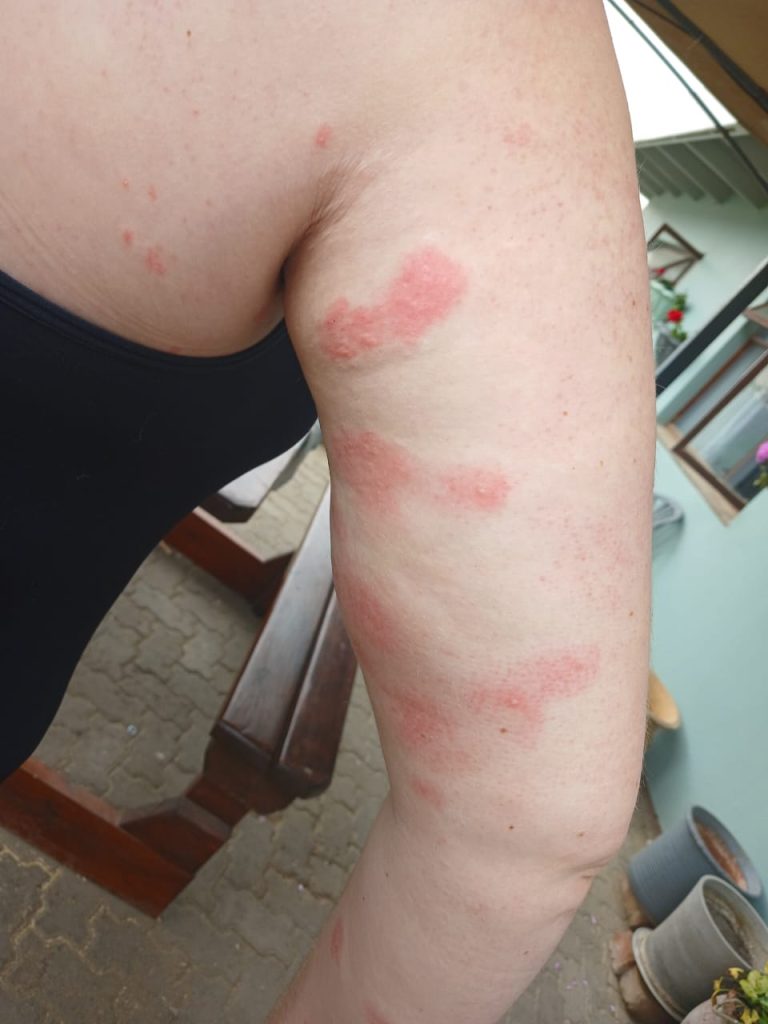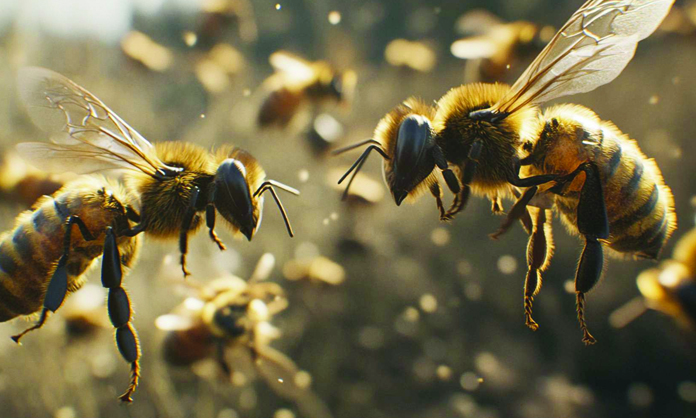Three dogs died and a woman was hospitalised after a swarm of bees launched an attack at Kramersdorp, Swakopmund, on Saturday.
Several other people and pets were also injured during the attack.
A woman who prefers not to be named and who was house sitting near the property, and one of the victims, says the experience was terrifying, because the bees were very aggressive.
“I tried going outside to get the dogs inside, and they just attacked.
I didn’t even know there was such a large number of bees at Swakopmund.”
The woman , who suffered about 50 stings to her arms, neck, back and stomach, described running to the shower to remove the bees from her body.

She eventually called her mother for help before being rushed to the hospital.
She spent two nights in hospital due to her wounds becoming infected.
The attack proved fatal for three of the property’s dogs, including a 50kg Labrador-Rottweiler mix.
The surviving dog required urgent veterinary care.
Tanita Botha, a relative, helped coordinate the rescue of the injured animals.
“It’s devastating,” she says.
“The dogs didn’t stand a chance. One of them was already in anaphylactic shock by the time it reached the vet. The swarm was overwhelming, and even people in nearby houses were stung.”
Botha speculated that the attack was triggered by environmental factors.
“The bees may have been agitated by freshly cut grass or other disturbances,” she says.
Swakopmund municipality general manager of health services, Lydia Mutenda, says keeping beehives in residential areas is prohibited, without exception.
“We don’t allow people to keep bees in their yards due to the safety risks,” she says.
“If bees are discovered, residents must report them to the municipality for removal.”
Gretchen Burmeister of the Beekeeping Association of Namibia says Namibia’s beekeeping industry predominantly works with Africanised honeybees, known for their aggressive behaviour.
She says she is concerned over the lack of awareness and training in handling these bees.
‘PROPER TRAINING NEEDED’
“There is a crisis with our bees in Namibia’s beekeeping industry,” she says, emphasising the need for proper training and protocols to manage these bees safely.
Burmeister says the government currently lacks adequate measures to address bee-related incidents, often resorting to extermination methods.
She stresses the importance of involving specialists in bee management and the need for the government to support and develop the beekeeping industry.

Addressing the misconception that Namibia’s dry climate is unsuitable for beekeeping, Burmeister says there is a significant shortage of bees for pollination, with the country unable to meet even 4% of the demand.
She warns against the importation of foreign bee species, which could harm local biodiversity, and calls for the development of local data platforms to inform industry practices.
Burmeister advocates for designated areas outside urban centres for relocating bees.
She cautions against applying foreign beekeeping practices to Namibia’s unique environment, stating, “they use American and European practices, but this is different to our circumstances”.
Burmeister urges immediate action to implement proper training, public awareness campaigns, and government support to ensure public safety and the sustainable development of Namibia’s beekeeping industry.
The owner of the house where the attack took place is out of the country and is only expected back next week, but The Namibian understands that a swarm of bees moved into the yard a while ago, and seemed harmless.
The hive involved was safely relocated after the incident on Saturday.
Stay informed with The Namibian – your source for credible journalism. Get in-depth reporting and opinions for
only N$85 a month. Invest in journalism, invest in democracy –
Subscribe Now!










